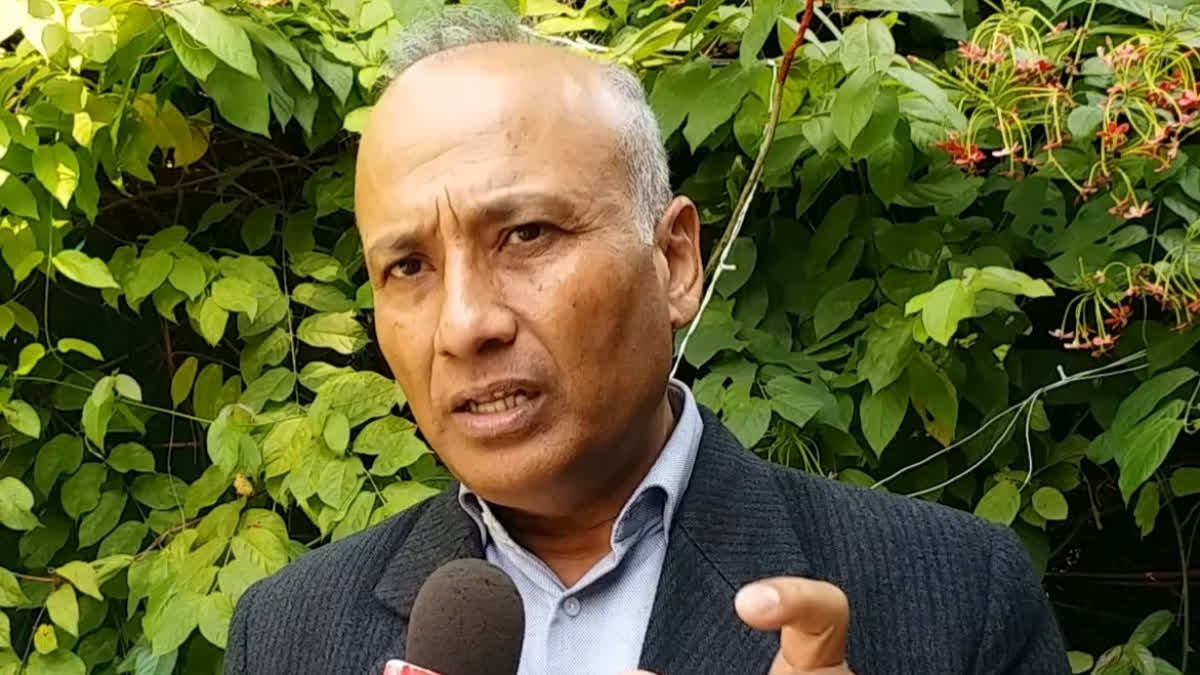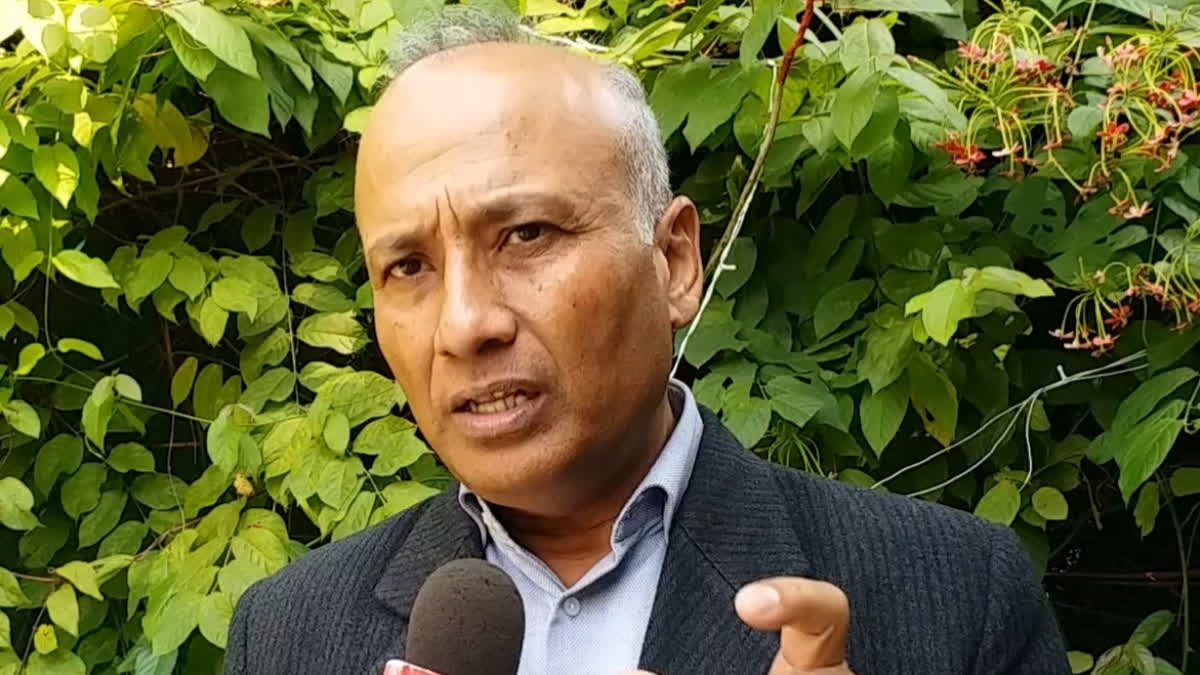
Professor Ish Sharma (ETV Bharat)
New Delhi: In a small corner of the world, Prime Minister Narendra Modi’s vision of globalising India’s “soft power” is quietly making an impact. Building upon his belief that “Ayurveda is a boon from India to the world. It’s India’s gift to the world”, Professor Ish Sharma has made a historic contribution to Mauritius.
Placed as the Ayurveda Chair at the University of Mauritius by the Government of India from 2021 to 2024, not only did he help establish the traditional system within the island nation’s health infrastructure, but also made Mauritius the first country in the world to incorporate the Ayurvedic diet into its school curriculum.
Scientific Method For Healthy Living
Speaking to ETV Bharat, Sharma explained that Ayurveda is not just a treatment, but a scientific method for living a healthy life. He explained that Ayurveda emphasises diet as the ultimate medicine. “The age of 6-12 years is considered the most important developmental period for children. So we took the initiative to teach children of this age the importance of a right, Ayurvedic diet,” he said.
Meanwhile, the University of Mauritius has begun offering several courses in Ayurveda. Sharma’s efforts have not only strengthened Mauritius’s health education, but also laid the foundation for a healthy lifestyle in children with the Mauritius Diet.
Sharma explained that this initiative was possible because Mauritius is a small country, where decisions can be implemented quickly. Executing such a programme in a large country like India, where education is a state subject, is challenging. “However, we are working towards incorporating the Ayurvedic diet into the central CBSE curriculum,” he said.
The Ayurveda maven’s journey to Mauritius is a story of fortunate coincidences. He was the Controller of Examinations at Guru Ravidas Ayurvedic University, Punjab, when he saw an advertisement by the Ministry of AYUSH, Government of India, for the post. He applied, and was selected for the Ayurveda Chair in Mauritius.
Garden Of Ayurvedic Marvels At The Presidential House, Mauritius
One of the first and most consequential projects he embarked upon during his tenure in Mauritius was building a 5,000 sqm Ayurvedic garden in the island nation’s presidential residence. A visibly proud Sharma claimed that while many presidential or prime ministerial residences around the world have herbal or medicinal gardens, the one in Mauritius is the first to be designated an Ayurvedic garden.
“We created a garden that was specifically Ayurvedic, not just herbal,” he said, adding that this reflects the growing global importance of Ayurveda.
The garden has nearly 100 varieties of medicinal plants and trees considered important in Ayurveda, like Ashwagandha, Giloy, Tulsi, Neem, Turmeric, Amla, Shatavari, Brahmi, Bael, Arjuna, Mulethi, Bhringaraj, Sarpagandha, etc. Alongside these, there are other useful plants like lemongrass, ginger, mint, aloe vera, bitter gourd, sandal, and asafoetida.
The development didn’t escape the attention of the authorities. While visiting Mauritius as the chief guest on the occasion of Mauritius’s Independence Day (March 12, 2024), President Draupadi Murmu praised the initiative and said that similar projects will be undertaken in India as well.
Spreading The Good Word In India
Since returning to India, Sharma has been working with Hyderabad-based Acharya Manish Ji to spread Ayurveda among the masses. He complemented Acharya Manish Ji for raising public awareness about Ayurveda, describing his efforts as revolutionary. “I completely connect with his enthusiasm and vision. Our goal is to educate people before they fall ill, so they can prevent the illness,” he said.
He said the purpose of Ayurveda is not only treating illness, but also preventive healthcare. “I’m not against allopathy. Every medical system has its own strengths, but the health of every individual is ultimately their own responsibility. If we want to prevent non-communicable diseases, society must become aware,” he said.
The Ayurvedic Diet
“The basic principle of Ayurvedic diet is ‘mindful eating’,” said Sharma, adding that one should concentrate solely on the food while eating, not mobile phones or TV. He said Ayurveda stresses upon desisting from overeating, as it was the root cause of many diseases.
Moreover, limiting consumption of sugar, salt, oil, and ghee is essential for a healthy body. According to Ayurveda, one should not eat after sunset, as it affects digestion. These principles are being taught to Mauritian children in the school curriculum, nudging them towards adopting healthy habits and inspiring their parents.
Read More
Ayurvedic Anti-Cancer Diet For Women, According To An Ayurveda ExpertFSSAI Launches Licensing Window For Ayurveda FoodsAn Ayurvedic Doctor’s Journey From Mumbai to New York To Reclaim Ancient Wellness For Modern Times | Author Interview

